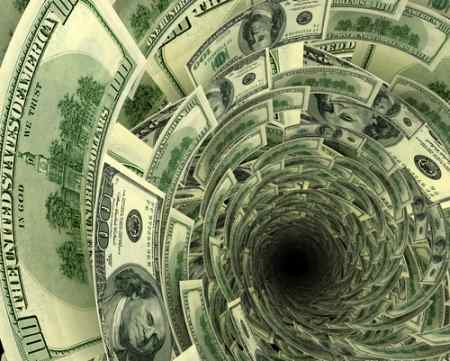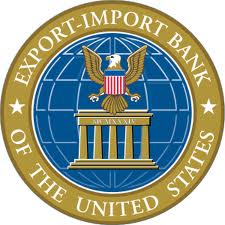
Below is an article I wrote two years ago as Congress was debating the reauthorization of the Export-Import (EXIM) Bank. The reauthorization debate is about to heat up again next month, and my opposition to this taxpayer-funded slush fund is as ardent as ever. Read the outline below, because the debate is exactly the same as it was two years ago, and my reasons for opposing EXIM haven’t changed at all.
The debate over the fate of the U.S. Export-Import (ExIm) Bank is heating up in Washington, and the choice could not be any clearer. The ExIm Bank provides taxpayer funded financing for large, multi-national corporations in the name of economic development while small businesses and American families cover the cost. This in spite of the fact that study after study, by accredited economists, which indicates that such import subsidization is not a net job creator, and does not “level the playing field” internationally.
In fact, export statistics have shown that nations that did not spend heavily on export subsidies and loan guarantees outperformed those that did in total export volume. Just as targeted tax incentives, through which government agencies pick winners and losers, distorts the domestic economy, ExIm Bank loans and loan guarantees are skewing the export economy.
Proponents of abolishing export subsidies rightly understand that reauthorizing ExIm is tantamount to tossing aside free market principles. Proponents of this agency, many of whom are truly smart and sincere people, offer explanations along the lines that they’re “creating a stronger foreign market for American goods.” The problem with this reasoning is that it’s wrong. By using government targeted incentives to effectively subsidize foreign markets, entities like ExIm actually undermine the domestic market.
Let’s take the sale of commercial aircraft as an example, since commercial aircraft sales constitute the vast majority of ExIm financing arrangements. Boeing sells the majority of its aircraft to foreign airlines, as those airlines qualify for U.S. government loan guarantees to attract lucrative financing. On the flip side, however, as it is called the export-import bank, ExIm loan programs make it more attractive for U.S. domestic airlines to buy foreign-built aircraft. This likely explains why foreign airlines are buying the bulk of Boeing’s output, while newer domestic airlines like JetBlue fly only foreign-made planes like the Brazilian Embraer and the French Airbus.
When the government gets involved in the otherwise free market, it creates all sort of economic imbalances. Not only do domestic U.S. airlines now heavily purchase foreign-made planes while foreign airlines buy American-made planes, but overall economic activity is dampened by government interventionism.
A great study published last year by the American Enterprise Institute calculated that nearly 40% of every dollar going into government gets caught up in bureaucratic costs. This translates into $0.40 of every $1.00 being wasted, when it could be more efficiently used in the free market to create jobs, expand output and generate wealth. The same is true of government financing schemes.
America’s history with loan guarantees isn’t exactly stellar; we’ve tried this stuff before. All sorts of folks are flying around telling us that the ExIm Bank pays for itself in the form of loan origination and loan guarantee fees. The same was said of the USDA and HUD mortgage loan guarantees too, until those guarantees started being called in. At the height of the housing market, the USDA, HUD and a host of other government loan guarantee programs were making a hefty profit; however, when the music stopped, the taxpayers didn’t have a seat to sit in. Those guarantees are only profitable until they are needed, and a recession makes them necessary; therefore, we are only another global recession away from having Air India default on an ExIm guaranteed loan for the purchase of a 787 Dreamliner for the American people to start paying for airplanes. If a private bank will not finance a transaction, and the government is the lender of last resort, it probably wasn’t a great loan opportunity in the first place.
Adventures in venture socialism like the ExIm Bank fulfill the warning of President Dwight D. Eisenhower of a ‘military-industrial complex.’ Eisenhower warned in his farewell address of the consequences if America ever allowed the Federal government to control its economy through defense spending. At a time when defense spending counted for nearly 60% of Federal expenditures, Eisenhower worried that the military would drive the economy in centralized Keynesian fashion. This proved to be partially inaccurate, as the military never drove our economy. Nevertheless, the essence of Eisenhower’s fear, that government would guide the economy, has come true in a host of other ways.
ExIm Bank, targeted incentives, national healthcare programs and the like are all part of the “government-industrial complex” that threatens to undermine our economic dynamism and strength.
Fundamental tax reform, reduced tariffs on raw materials (i.e. – steel and other metals) and an improved regulatory environment will do far more for American business than reauthorizing the ExIm Bank. It is time to stop treating the symptoms of our slow economic growth and start treating the syndrome, which is big government. ExIm Bank does nothing to treat this syndrome but, instead, injects another dose of it into the economic system of America.





